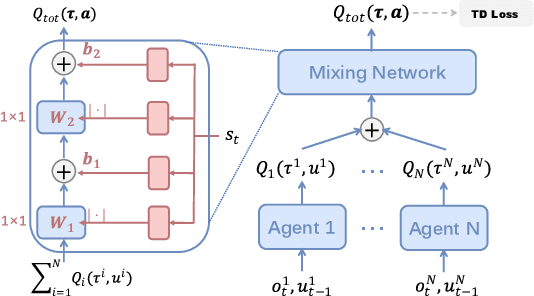Revisiting QMIX: Discriminative Credit Assignment by Gradient Entropy Regularization
Paper and Code
Feb 16, 2022



In cooperative multi-agent systems, agents jointly take actions and receive a team reward instead of individual rewards. In the absence of individual reward signals, credit assignment mechanisms are usually introduced to discriminate the contributions of different agents so as to achieve effective cooperation. Recently, the value decomposition paradigm has been widely adopted to realize credit assignment, and QMIX has become the state-of-the-art solution. In this paper, we revisit QMIX from two aspects. First, we propose a new perspective on credit assignment measurement and empirically show that QMIX suffers limited discriminability on the assignment of credits to agents. Second, we propose a gradient entropy regularization with QMIX to realize a discriminative credit assignment, thereby improving the overall performance. The experiments demonstrate that our approach can comparatively improve learning efficiency and achieve better performance.
 Add to Chrome
Add to Chrome Add to Firefox
Add to Firefox Add to Edge
Add to Edge